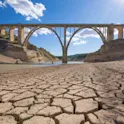
Climate action
07 Sep 2021
Climate crisis could double frequency of extreme regional summer droughts in Europe
Climate crisis could double frequency of extreme regional summer droughts in Europe, according to new study in Frontiers in Water

Climate action
07 Sep 2021
Climate crisis could double frequency of extreme regional summer droughts in Europe, according to new study in Frontiers in Water

Climate action
25 Aug 2021
Environmental privilege: How recovery and rebuilding after climate disasters favors the wealthy, Frontiers in Sustainable Cities
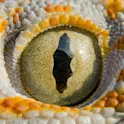
Earth science
16 Aug 2021
By Clarissa Wright, Frontiers science writer Close-up of a reptile eye, but not the ancient Eudibamus cursoris. Image Aedka Studio/Shutterstock.com The Early Permian marked a time of major seasonal changes on the planet, as reptiles rapidly diversified. A key innovation is seen in bolosaurids with the ability to run at high speeds on two legs. Scientists from California State University and Carnegie Museum of Natural History in the US and University of Toronto Mississauga, Canada, collaborated in a study recently published to Frontiers presenting the first comprehensive description of the earliest known bipedal reptile from the Early Permian – a type of bolosaurid called Eudibamus cursoris. For the first time, its unique style of locomotion that achieved high running speeds on two legs has been revealed. The Permian period (between 298.9m and 252.2m years ago) was the last period of the Paleozoic Era. The Earth was warming out of an ice age, while weather intensified. Remnants of carboniferous rainforests disappeared, replaced by open desert. Facing these environmental changes, reptiles rapidly diversified and showed remarkable innovations during the Permian. Bolosaurids are the oldest family belonging to the ancient group of extinct reptiles known as Parareptilla (or parareptiles), and are considered a […]
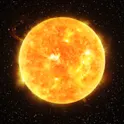
Space sciences and astronomy
21 Jul 2021
For the first time, stealth coronal mass ejections can be detected before they wreak havoc on Earth without the need for dedicated spacecraft: Frontiers in Astronomy and Space Sciences
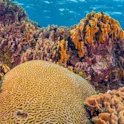
Climate action
19 Jul 2021
Three key habitat-building corals face worrying future due to climate crisis, shows new study in Frontiers in Marine Science

Earth science
15 Jul 2021
Dr. Alexandra Turchyn We are honored to announce that Dr. Alexandra (Sasha) Turchyn, Co-Chief Editor of the Biogeoscience section of Frontiers in Earth Science is a recipient of the 2021 R. Berner Lectureship for her important contributions in the field of global geochemical cycles. Recipients of this Lectureship are selected for their ‘exceptional ability to define globally important biogeochemical processes, develop new understandings, and significantly advance the corresponding area of research.’ Dr. Turchyn was presented the lectureship at the Goldschmidt 2021 conference, where she gave a Keynote Lecture on the topic of ‘Exploring the biogeochemical sulfur cycle over the past 150 million years’. Dr. Turchyn graduated from Harvard University in 2005, and is currently a Reader in Biogeochemistry at the University of Cambridge. Her present research field includes understanding how the ocean’s chemistry has changed over time. It focuses on how interrelated biogeochemical cycles have responded to changes in climate on earth. Check out the Biogeoscience section The R. Berner Lectureship was established in 2017 to commemorate the late Robert Berner who was known for his outstanding contributions in the field of Geochemistry, including his contributions to modeling the carbon cycle. It is a joint program of the Geochemical Society […]

Climate action
12 Jul 2021
Just 25 mega-cities produce 52% of the world’s urban greenhouse gas emissions, finds new study in Frontiers in Sustainable Cities
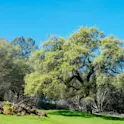
Climate action
29 Jun 2021
California’s blue oak woodlands are threatened by hotter and more frequent extreme droughts due to climate change: Frontiers in Climate
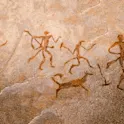
Environment
24 Jun 2021
By Colm Gorey, Frontiers science writer/Prof James Serpell, University of Pennsylvania Prof James A Serpell, University of Pennsylvania. Image: University of Pennsylvania Two distinctly different stories have been created to explain how fearsome, wild wolves were first domesticated by humans, according to Prof James A Serpell of the University of Pennsylvania and the Wallis Annenberg PetShape Leadership Institute. However, in the open access journal Frontiers, he recently published a paper investigating the truth of these claims. Despite being considered mankind’s best friend, the ancestors of modern dogs were a lot less welcoming to human owners. However, trying to trace the timeline of when early humans first domesticated wild wolves to serve their needs has proven difficult. One of the most prevalent origin stories in scientific literature suggests the ‘commensal scavenger hypothesis’. This posited that wolves essentially domesticated themselves by invading ancient human settlements in search of animal remains and other edible waste discarded by hunter-gatherers. Over time, tolerance by humans gave a selective advantage to the bolder, less fearful wolves, which then diverged from the ancestral population as they adapted to the new scavenging niche. An alternative hypothesis – sometimes referred to as the pet keeping or cross-species adoption hypothesis […]
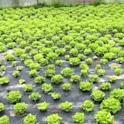
Sustainability
31 May 2021
By Tayyibah Aziz, science writer A productive lettuce yield following the researchers’ new biodisinfestation method. Image: Maite Gandariasbeitia et al A new study published by the open access publisher Frontiers has demonstrated that beer bagasse and rapeseed cake can be used as effective biodisinfestation treatments to reduce populations of soil parasites and increase crop yields. Researchers demonstrated that using these organic treatments in soils significantly reduced root-knot nematodes and boosted beneficial soil populations, as well as reducing waste from the agricultural industry by incorporating organic by-products as a treatment instead of harmful chemical fumigants. The use of many chemical fumigants in agriculture have been demonstrated to be harmful to human health and the environment and therefore banned from use. Now, in an effort to reduce waste from the agricultural industry and reduce the amounts of harmful chemicals used, researchers have investigated using organic byproducts from beer production and farming as a potential method to disinfest soils, preserve healthy soil microorganisms and increase crop yields. In this study published to Frontiers in Sustainable Food Systems, researchers from the Neiker Basque Institute for Agricultural Research and Development in Spain investigated using agricultural by-products rapeseed cake and beer bagasse (spent beer grains), along […]
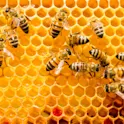
Environment
17 May 2021
World Bee Day 2021’s theme is Bee engaged – Build Back Better for Bees, which focuses on finding ways to restore, support and enhance the role of pollinators. Check out our curated list of the best open Research Topics addressing these issues!
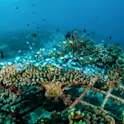
Climate action
11 May 2021
New practices for reef restoration can protect coasts floods: Frontiers in Marine Science

Climate action
05 May 2021
By Robert Hanley / Durham University communications team The Arenal Volcano seen from the Monteverde Cloud Forest. Monteverde-Arenal is one of 21 Important Bird and Biodiversity Areas (IBA) in Costa Rica. Credit: Sorin Vacaru Photography / Shutterstock.com Researchers show that the current network of Important Bird and Biodiversity Areas (IBAs) across the Americas should remain able to house the majority of bird species of conservation concern even after climate change. While individual bird species may shift their distribution range, 73% of species of conservation concern are likely to persist in at least half of the IBAs in which they occur, and 90% of species in at least a quarter of their current IBAs. This implies that future conservation efforts in the Caribbean and Central and South America can focus on expanding the current IBA network. A new study, led by Durham University and published in the journal Frontiers in Ecology and Evolution, investigates the impacts of potential climate change scenarios on the network of Important Bird and Biodiversity Areas (IBAs) across the Caribbean, and Central and South America. The research was carried out in collaboration with Senckenberg Biodiversity and Climate Research Centre, BirdLife International and the National Audubon Society. IBAs are […]

Climate action
21 Apr 2021
Earth Day 2021’s theme is Restore Our Earth™, which focuses on natural processes, emerging green technologies, and innovative thinking that can restore the world’s ecosystems. Check out our curated list of the best Research Topics addressing these issues!
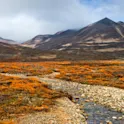
Environment
15 Apr 2021
Only between 2% and 3% of the Earth’s terrestrial surface can be considered ecologically intact, according to a new study published in Frontiers in Forests and Global Change
Get the latest research updates, subscribe to our newsletter